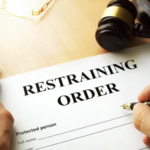Is Having Bills to Pay an Acceptable Fraud Defence?

A university contractor under investigation by the Independent Commission Against Corruption (ICAC) for fraud has told the inquiry that he was unable to pay his water and electricity bills on his $180,000 salary from Macquarie University, which led him to commit fraud.
But is being unable to pay your bills an acceptable defence in a criminal court?
The ICAC case
The IT manager, Brett Andrew Roberts, allegedly sent invoices to the University of Sydney, the University of Newcastle and Macquarie University for work that was never completed.
The invoices were sent between 2005 and 2013 from a company known as Management and Professional Services, which was owned by a friend of Mr Roberts who he was staying with two nights a week as he commuted from Newcastle to Sydney for work. The total amount that Mr Roberts allegedly obtained was $113,715.
The friend, Christopher Killalea, gave evidence against Mr Roberts at the inquiry, stating that although he had helped him out with some invoice, he was not aware that his company letterhead was being used for fraudulent purposes.
When questioned, Mr Roberts produced a set of emails which he claimed were between himself and Mr Killalea discussing work, but the emails are alleged to have been concocted by Roberts.
Mr Killalea reported his friend to ICAC once he became aware of the situation and the friendship ended.
At the time the fraud was detected, Mr Roberts was allegedly on the brink of defrauding Macquarie University of a further $97,000. He admitted in the inquiry that at the time he sent the fraudulent invoices he was aware that he was committing fraud.
Fraud defence mounted
In his defence, Mr Roberts stated that the fraud was devised between himself and Mr Killalea together and that he didn’t concoct stories to implicate his friend in the fraud, evidence that was described by the supporting counsel as “completely fanciful”.
He also stated that due to high water and electricity bills at home he had to ask people for loans because he couldn’t afford to pay his utilities, even though he was earning a salary of $180,000.
Mr Roberts also admitted to providing false evidence to ICAC investigators during a private hearing before the public inquiry and confessed that he had lied about his qualifications on his CV. He has expressed remorse for his actions and claims that he wants to make amends. The results of the inquiry are due to be released later this year.
Are there any acceptable fraud defences?
Unfortunately for Mr Roberts, financial hardship is not a defence to fraud charges.
However, there are a number of defences that are considered to be acceptable by the courts.
If you are charged, a strong fraud defence could make the difference between a criminal conviction and a harsh penalty on the one hand, and having the charge dropped or thrown out of court on the other.
Defending fraud charges
Acceptable fraud defences include making a genuine mistake, or having reason to believe that you were entitled to the money or property that was allegedly defrauded.
It is important to be aware that, for you to be found guilty of fraud, the prosecution must prove a number of essential ingredients, and each of those ingredients must be proved beyond reasonable doubt.
If they cannot prove each part of the charge, the case must be dropped or thrown out of court.
For this reason, it is important to seek expert advice from a lawyer who is experienced in fraud cases so that they can ascertain whether the prosecution have enough evidence for you to be found guilty of the charges brought against you.
The specific defence strategy in your case will very much depend on the charges you are facing and the nature and extent of evidence that is produced by the prosecution.
In many cases, the prosecution will not have enough evidence to prove a very serious charge, but they may have enough to prove a less-serious charge.
In such cases, your lawyer may seek to have the charges downgraded and / or the number of charges reduced to enable you to get the best outcome.
If there are serious deficiencies in the prosecution case, a strong lawyer may be able to persuade the prosecution to drop the case altogether or, if they refuse to do so, have the case thrown out of court.
But what if I want to plead guilty?
Even if you wish to plead guilty, taking the rights steps in the lead-up to your sentencing hearing and presenting your case the right way in court can encourage the judge or magistrate to treat you leniently.
It is often crucial for your lawyer to engage in charge negotiations with the prosecution to ensure that you end up facing the least-serious charges that the law allows. The number of the charges can also be reduced; for example, it is not unusual to reduce 50 or more fraud charges down to just one or two, which can lead to a much better outcome.
Courts will take into account a range of factors when deciding an appropriate penalty in fraud cases. These include:
- The amount defrauded,
- The period over which it was defrauded,
- The number of individual acts of fraud,
- The extent of the breach of trust,
- The level of planning and sophistication,
- Any attempts to repay the sums defrauded,
- The amount actually repaid,
- Any steps towards addressing issues may have contributed to the offending behaviour, such as a drug addiction, gambling addiction or extreme financial hardship,
- Whether there was a plea of guilty and, if so, how early it was entered,
- Other personal factors.
Unfortunately, fraud cases can take some time to deal with, especially if there are complex transactions and large amounts of materials concerned, and the proceedings can cause emotional and financial hardship.
But an experienced criminal lawyer can certainly help to ease some of the burden and work towards getting you the best possible result.






